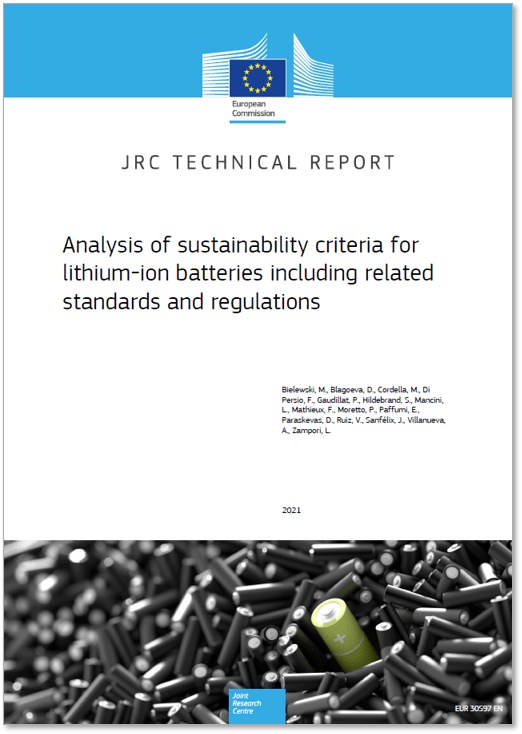The report offers a technical perspective on sustainability criteria for the upcoming EU Battery Regulation, slated for adoption in 2021. The report is based on the JRC’s work in support of DG GROW and DG ENV during the regulation’s preparation. The focus lies on lithium-ion batteries for e-mobility and stationary energy storage, and key sustainability criteria encompass electrochemical performance, material efficiency, carbon footprint, and safety.
The report recommends regulations for initial electrochemical performance, emphasizing round-trip efficiency (RTE) as a crucial metric, and proposes minimum electrochemical durability standards for battery degradation over time. It suggests facilitating repair, reuse, and recycling by designing batteries for disassembly, providing critical information, and mandating open data diagnostics.
Regarding the lifecycle carbon footprint, the Product Environmental Footprint methodology is recommended. To ensure low emissions during battery production, options include waiting for Carbon Border Tariffs or using existing methods like the Product Environmental Footprint.
Safety is addressed through recommended compliance tests for thermal, electrical, and mechanical aspects. Safety requirements from the UNECE GTR on EV safety are highlighted for e-mobility batteries, and safety measures for stationary battery applications are proposed.
The report underlines the importance of addressing safety concerns for workers and operators involved in battery manipulation for repurposing, second use, and recycling. It stresses the need for harmonized, comparable data between trade and waste management aspects.

